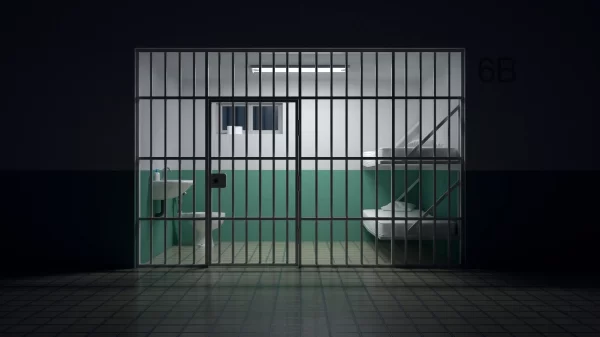Alabama Supreme Court Chief Justice Tom Parker on Friday said that the Judicial System of Alabama needs more funding and at least 21 more judges.
The Alabama House of Representatives will debate the 2022 fiscal year state General Fund budget on Tuesday. In the proposed House Ways and Means Committee budget, the judicial branch of government is getting a $4,585,202 increase, which is $228,000 more than Gov. Kay Ivey had in her budget request. This would be slightly more than a 2.6 percent increase over the 2021 budget for the courts of $176,094,674 to take the courts to $180,679,876.
Of the increased funding for the courts, just $2,137,625 is budgeted for the Unified Judicial System.
The Legislature is considering legislation to bring back retired judges on a part-time basis to deal with the backlog. That legislation, House Bill 109, was sponsored by House Judiciary Chairman Jim Hill, R-Odenville.
“It passed the House almost unanimously,” Parker said. It is currently being considered by the Alabama Senate.
Parker said that he is confident that he can hire 21 retired judges, who are willing to come back on a part-time basis, while still drawing their retirements, to help deal with the case backlog – a backlog that has only gotten worse with COVID-19 and the shutdown of many courthouses for weeks early in the pandemic.
“These judges are experienced and ready to get to work,” Parker said. “They are dedicated public servants who want to do something to help”
Parker said that the 21 number was determined by a caseload study. The areas of greatest needs are Baldwin County (the 28th Judicial Circuit), Madison County (the 23rd Judicial Circuit), and the 19th Judicial Circuit, which encompasses Chilton, Autauga and Elmore Counties.
Baldwin with an estimated 2021 population of 233,992 people has grown 27.79 percent since 2010 and is the fastest-growing county in the state of Alabama. Madison has an estimated population of 384,719 people, 14.47 more than in 2010 — the fourth-highest rate of growth in the state.
Elmore, Chilton and Autauga Counties have grown at a rate of 2.58 percent, 2.99 percent and 3.23 percent to take their combined 2021 population to 183,104, which would make the 19th Judicial Circuit the eighth largest county if it were just one county. Many Alabama judicial circuits that are just one county are nowhere near that total population.
“District Court Judge Steven Whitmire in DeKalb County carries the caseload of two judges,” Parker said.
Parker said that HB109 is a “stop gap.” What they really need are more full-time judges, but that costs money.
“$400,000 is the bare minimum,” Parker said. “That is the judge, the judge’s secretary, who is more than a secretary they are pushing paper throughout the legal system keeping things moving, and a judicial assistant.”
Parker said that an earlier Legislature “gutted” the Alabama court system.
“By law, you can not cut the salary of an elected official,” Parker explained why the courts couldn’t have just cut pay. “The cuts went to the people on the bottom end of the pay scale — the bailiffs and judicial specialists who work in the circuit clerks’ offices. I have restored the judicial specialists, but we still don’t have bailiffs. The sheriffs are responsible for courthouse security, but they should not have to be responsible for courtroom security.”
“Our judges deserve to have their own security,” Parker said. “It’s not safe in this world today.”
Parker credited the judges and their staff for keeping the judicial system going despite the cuts.
“They are dedicated professionals,” Parker said. “They are not functionaries or bureaucrats. That dedication is what has kept them going in the face of woeful underfunding.”
Parker says that he has developed a plan to restore the court system, but implementing that plan will require more funding from the General Fund budget
The chief justice said that the retired judges bill passed the House last year to address the case backlog, but the COVID-19 pandemic interrupted the 2020 Legislative Session before the Senate could address it. COVID-19 has made the situation worse because performing jury trials while still maintaining social distancing protocols has made jury trials extremely difficult in many Alabama courtrooms.
“The protocols we put in place have worked,” Parker said. “There are no reports of anyone who has served on a jury getting COVID-19.”
“We hope to be at full bore soon,” Parker said.
Parker said that HB109 will help deal with some of the backlogs but that it will be after Oct. 1 when the 2022 budget year begins before he can fill those retired judgeship spots.



















































